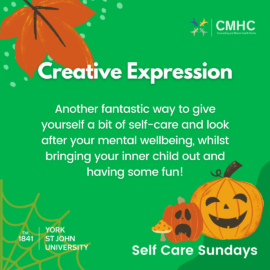October the 10th presents us with World Mental Health Day
Mental health challenges such as depression, anxiety and substance misuse, are a growing concern around the world. [1]
World Mental Health Day is an international day aimed at raising awareness of Mental Health issues, providing education on the subject and to help mobilise support. The day was first celebrated in 1992 and has been observed on the same date annually since. Each year the World Health Organisation (WHO) choose a theme and highlight issues surrounding this. 2021’s chosen theme is ‘Mental health care for all: Let’s make it a reality’.
We all know that the last 18 months or so have been a struggle given the Covid-19 pandemic, and as to be expected, some have found this more difficult than others for varying reasons, which in turn has had a negative affect on mental wellbeing. Accessing any kind of healthcare during the pandemic has been a challenge, and one thing that has come to light through my line of work, is that the strain on Mental Health services is greater than ever. People are finding it difficult to access support when it is needed the most, with waiting lists longer than ever for counselling or other therapies. Others have had sessions cut short or put on hold throughout the pandemic, at a time when they needed this the most. Even being able to get appointments with the GP to initiate support can be nigh on impossible, with some still not seeing patients face to face. These issues were highlighted by the WHO in mid 2020, when they conducted a survey which showed that indeed mental health services, neurological and substance misuse services had all been significantly disrupted.
The WHO states that despite the universal nature and level of mental illness globally, there is still a substantial gap between the demand and supply of mental health services. They report that as a result of this there are relatively few people around the world that have access to quality mental health services. The WHO feel that the gaps in care are a result of under investment over long periods of time for mental health promotion, prevention and care [2]. On average, countries have been known to spend just 2% of national health budgets on mental health, and it is thought that this has not changed in a number of years.
Although we paint a bleak picture for the future of mental health services and the impact that Covid-19 has had, there is some good news. It appears that following the pandemic governments have realised the shortfall. At the World Health Assembly in May this year governments from around the world recognized the need to upscale services and support them more. Let’s hope that their plans do indeed come to fruition! Improved access to services and support is obviously a major factor in delating with mental wellbeing, however there are steps that we are able to take to help ourselves which are of equal importance.
Given this, I thought I’d take a look at how this can be achieved. Drawing on my own experiences, and having talked to a number of friends on the subject, I have compiled a few tips that have proven to be effective in maintaining good mental wellbeing:
- Talk about your feelings. Now I feel like I should practice what I preach here, as I really do struggle to do this. However, what I have found useful is writing down what I am feeling. I started a personal blog / diary which I use to basically rant and moan. (Feel free to visit! www.diaryofamuddlethroughmum.com) Others are able to read and interact and this really does help. Keep a journal also. It’s seriously just like offloading your worries.
- Keep active. BUT, make sure it’s doing something you actually enjoy. I took up kickboxing, really liked the idea of it, but I struggled to make myself go. Then I would berate myself for not going, and get myself all worked up and it just made things worse. I LOVE swimming, and have found this very helpful and calming. Being active is not only great for your physical health and fitness. Evidence also shows it can also improve your mental wellbeing by raising your self esteem, helping to set and achieve goals and causing chemical reactions in the brain that can positively improve your mood.
- Podcasts! Now this is relatively new concept for me. My husband listens to a lot of sports podcasts, and this inspired me to find something relative to me. There are so many podcasts available that deal with mental health. I have subscribed to one which I have found unbelievably helpful. Please excuse the crude title but ‘ No f*cks given’ by Sarah Knight has really been a game changer for me!
- Ensuring you have some alone time.
- Meditation or mindfulness
- Do something you are good at! This will help you build self confidence, then build yourself up to new / more challenging tasks.
- Eat well. our brain needs a mix of nutrients to stay healthy and function well, just like the other organs in your body. A diet that’s good for your physical health is also good for your mental health.
- Drink less alcohol. From my own experience I can say that too much alcohol exacerbates my symptoms. I don’t go out often or drink heavily, but when I do the feelings experienced afterwards are terrible. Increased anxiety, feeling ashamed and guilty.
So, these are just a few things we can do to promote good mental wellbeing for ourselves. But how can we help and empower others?
For me, having personal experience with the healthcare system and having accessed support myself is a bonus. And actually, being open and communicate how I am feeling (especially via my blog) has helped me in sharing the knowledge. How I recognised there was a problem, where to go for support and services available, and also taking better care of my body as a whole (which I’m still working on). Whilst it may appear simple to some, others may not know where to start, and this can be overwhelming in itself.
One of the simplest things we can do is just being there for the person. Let them know you will listen without judgement, and will do what you can to support them. Encourage them to focus on the positive rather than the negative, but be patient. Offer to go to appointments with them for support. Offer to do things with them that they enjoy doing, invite them to events or gatherings. But bear in mind that doing too much can often be stressful, and having time to themselves is also important.
Getting help:
As always, I would recommend visiting your GP to discuss your concerns and they will be able to help. They will talk through your options, and recommend treatments specific to your concerns. However there is an abundance of help available on the internet that can be very useful. Here are a few sites that can offer advice and guidance:
- Samaritans
- Rethink Mental Illness
- Mind
- NHS Choices
- The Mix
- Childline
- Youth Access Directory of Services
- Youth Wellbeing Directory
- Young Minds’ parents helpline
- Counselling and Mental Health Centre
Kirsty, Volunteer Blogger
_______________________________
References:
1. Lozano, R. et al. (2012) Global and regional mortality from 235 causes of death for 20 age groups in 1990 and 2010. a systematic analysis for the global burden of disease study 2010. The Lancet. 380(9859), pp. 2095–2128.
2. The World health organization website. Accessed 08/10/2021 Key messages (who.int)



